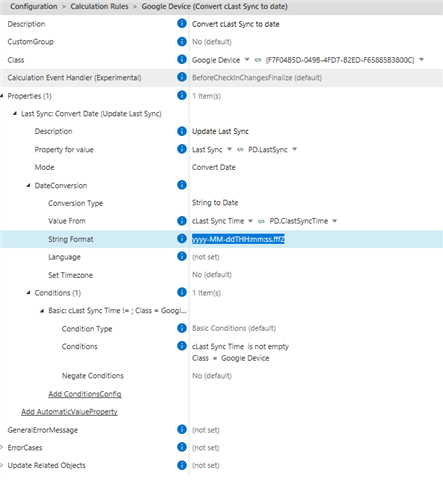Hi guys,
we have a connection between our on-prem AD and our M-Files "employee" Objects. We use a legacy database connection for this.
The problem is that whereas everything works fine in general, I cannot get an AD user attribute of type string ("extensionAttribute4" in our case) mapped onto an M-Files property of type DATE ("Birthday"). I get an error message saying that conversion of datatype 'DBTYPE_WVARCHAR > DBDATE' is not supported.
Two questions on this:
1.) is it true that absolutely no conversion attempts are taking place in the background? If this is true I either have to give up or look for another AD user object attribute of a different type (which one?)
2.) if there are conversion attempts taking place and the error message is simply not precise enough, what would be the correct format for my string attribute in order for M-Files to convert it successfully? I tried "1990-03-12", "03.12.1990", "1990-12-03T00:00:00+01:00" and many others without success.



